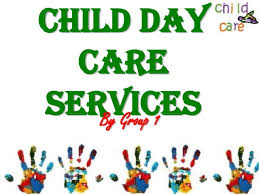How to Start a Successful and Sustainable Child Daycare Business That Attracts Customers
Starting a child daycare business is both a rewarding and profitable venture. As parents increasingly seek reliable and high-quality childcare services, the demand for well-run daycare centers continues to grow. However, launching a successful daycare requires more than just a love for children—it demands strategic planning, compliance with regulations, financial management, marketing, and a commitment to excellence.
In this comprehensive guide, we will explore the essential steps to establish a sustainable daycare business that not only meets industry standards but also attracts and retains customers.
Develop a Solid Business Plan
A well-structured business plan serves as the foundation for your daycare center. It should outline your mission, vision, target market, operational strategies, and financial projections. Key elements to include:
- Business Concept – Define your daycare’s philosophy, services offered, and unique selling points.
- Market Analysis – Research the demand for daycare services in your area, identify competitors, and understand parental expectations.
- Operational Plan – Detail your facility requirements, staffing needs, daily schedule, and curriculum.
- Financial Plan – Estimate start-up costs, ongoing expenses, pricing structure, and revenue projections.
A strong business plan not only guides your operations but also attracts potential investors or funding opportunities.
Choose the Right Business Structure & Get Licensed
To operate legally, you must select a business structure that suits your needs:
- Sole Proprietorship – Easy to set up but lacks liability protection.
- LLC (Limited Liability Company) – Offers personal asset protection and tax benefits.
- Corporation – Ideal for larger daycare operations with multiple investors.
After choosing your structure, obtain the necessary licenses and permits. Requirements vary by location but typically include:
- Childcare center license
- Health and safety inspections
- Background checks for staff
- Fire department approval
- Zoning permits
Ensuring compliance with local, state, and federal regulations builds credibility and trust with parents.
Select a Strategic Location
The location of your daycare significantly impacts its success. Consider:
- Proximity to residential areas and workplaces
- Accessibility and parking convenience
- Safe and child-friendly environment
- Adequate indoor and outdoor space
A well-chosen location enhances visibility and makes it easier for parents to drop off and pick up their children.
Design a Safe and Stimulating Environment
Parents want a daycare that prioritizes safety, comfort, and learning. Your facility should include:
- Secure entrances and exits
- Age-appropriate furniture, toys, and learning materials
- Clean and well-ventilated spaces
- First-aid kits and emergency procedures
- Outdoor play areas with proper supervision
A visually appealing, well-organized daycare creates a positive impression and encourages word-of-mouth referrals.
Hire Qualified and Passionate Staff
Your staff represents the heart of your daycare. Parents trust you with their children, so hiring the right team is crucial. Look for:
- Certified and experienced childcare providers
- First-aid and CPR-certified professionals
- Warm, patient, and engaging personalities
- Teachers with early childhood education (ECE) credentials
Offer competitive salaries, ongoing training, and a positive work culture to retain dedicated employees.
Develop a Curriculum That Stands Out
A structured curriculum enhances child development and attracts parents seeking quality education. Consider:
- Play-based learning for toddlers
- STEM (Science, Technology, Engineering, Math) activities
- Arts and music programs
- Social-emotional learning and character development
- Bilingual or language immersion programs
A well-rounded curriculum differentiates your daycare from competitors and boosts enrollment.
Set Competitive Pricing and Offer Flexible Payment Plans
Your pricing should reflect the quality of care while remaining affordable for your target market. Consider:
- Full-time, part-time, and drop-in rates
- Sibling discounts
- Payment plans and financial assistance options
- Competitive pricing based on market research
Providing flexible options makes your daycare accessible to more families.
Invest in Effective Marketing Strategies
To attract and retain customers, you need a strong marketing plan. Use these strategies:
Online Presence:
- Create a professional website with information about your services, pricing, and testimonials.
- Utilize social media platforms (Facebook, Instagram, Pinterest) to engage parents and showcase daily activities.
- Use Google My Business and local directories to appear in searches for “daycare near me.”
Referral Programs:
- Offer discounts to parents who refer new families.
- Partner with local pediatricians, schools, and businesses to gain referrals.
Community Engagement:
- Host open houses and free parenting workshops.
- Attend local events and distribute flyers.
- Collaborate with schools, libraries, and organizations to establish credibility.
Effective marketing builds a strong reputation and increases enrollment.
Provide Exceptional Customer Service
Word-of-mouth recommendations are powerful in the childcare industry. To keep parents happy:
- Maintain clear and transparent communication.
- Use parent communication apps for updates and photos.
- Offer flexible schedules and personalized care.
- Address concerns promptly and professionally.
A high level of customer service builds long-term relationships and trust.
Ensure Long-Term Sustainability
To sustain and grow your daycare business, focus on:
- Continuous Improvement – Update programs, invest in new learning materials, and incorporate feedback.
- Financial Management – Maintain a budget, track expenses, and reinvest profits into improvements.
- Compliance and Training – Stay up to date with regulations, provide staff training, and conduct regular audits.
- Expansion Opportunities – Consider opening additional locations or adding new services (e.g., after-school care, summer camps).
A sustainable daycare adapts to industry trends and consistently delivers quality service.
Conclusion
Starting a successful child daycare business requires careful planning, dedication, and a commitment to providing exceptional care. By following these steps—developing a solid business plan, securing licenses, hiring qualified staff, designing a safe environment, and implementing effective marketing strategies—you can create a thriving daycare that attracts customers and ensures long-term success.With passion, professionalism, and persistence, your daycare can become a trusted and beloved childcare provider in your community.




